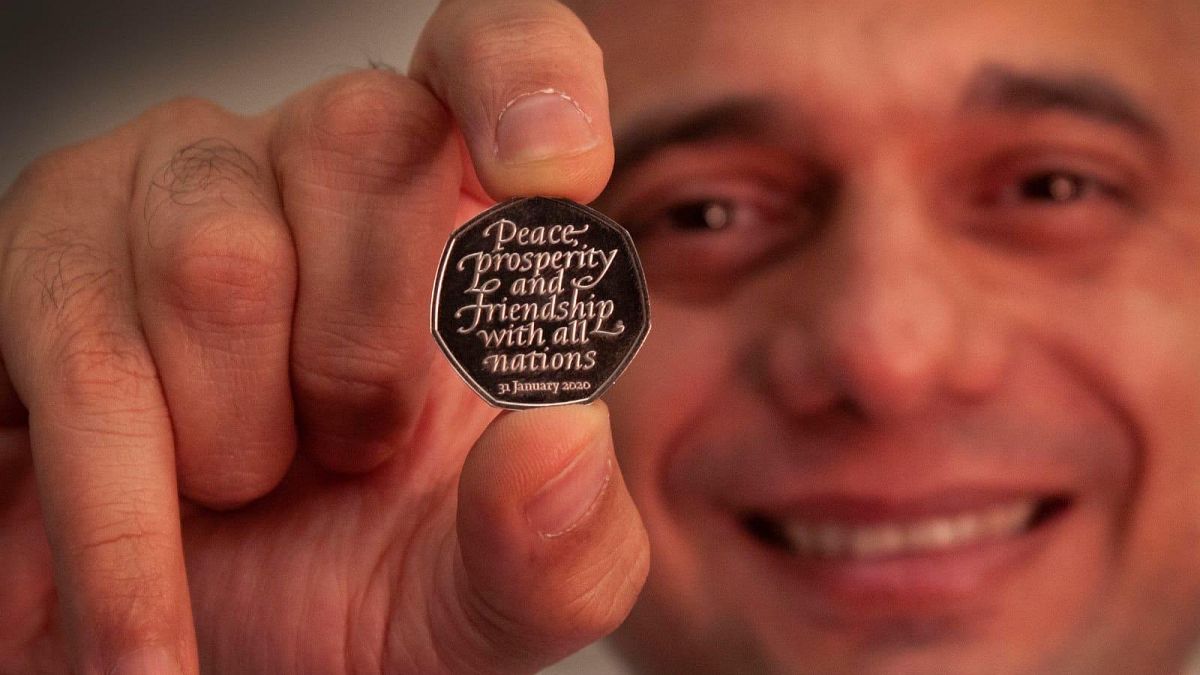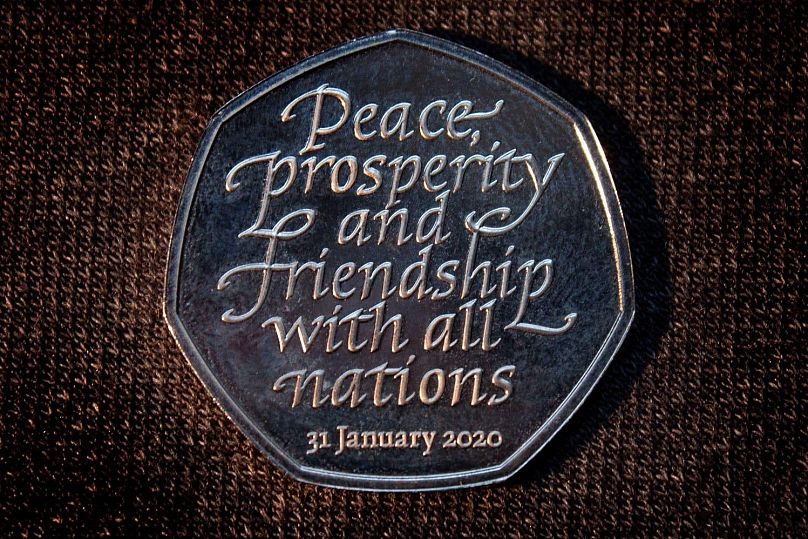The last batch of coins minted by the government had to be melted down after the UK failed to leave the European Union on October 31.
A newly-minted 50p coin that celebrates the UK leaving the European Union on 31 January has been unveiled by the UK Chancellor, Sajid Javid.
It comes after the previous batch of a million coins minted ahead of the original exit date - October 2019 - had to be melted down when Britain failed to leave the bloc last year.
Three million of the coins, which bear the inscription "Peace, prosperity and friendship with all nations", will enter circulation on Friday, with seven million more to follow in the coming months.
On Twitter, Javid said: "This coin marks the beginning of an exciting new chapter in British history. Let’s look forward with confidence & unleash the enormous potential of our great country."
The European Parliament is expected to approve Boris Johnson's Brexit deal on Wednesday, paving the way for the UK to leave the EU on Friday 31 January.
Almost four years since the UK voted by a slim margin to leave the EU, Britain has had two elections and three prime ministers, with former leader David Cameron - who campaigned to remain - standing down after the vote in 2016 and Theresa May in 2019, when she was replaced by Johnson.
In a tumultuous year in British politics, Johnson's hardline on Brexit saw a mass of defections from within his own party in 2019, but swept the polls during a snap election in December, winning a huge majority in parliament and almost guaranteeing that he would be able to pull the UK out of the EU.
Following the election, he comfortably forced his Brexit bill through both houses of parliament and now all that remains is for the EU to approve it on Wednesday. Then begins the complex process of negotiating a trade deal with Europe, which has to be achieved before the end of 2020.
Read more:

